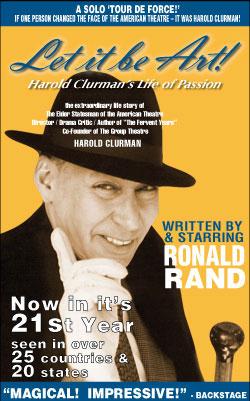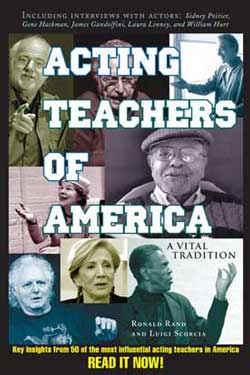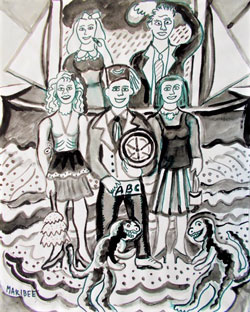“The Cherokee Word for Water”
– A True Story of Wilma Mankiller
(with an excerpt from Every Day Is a Good Day: Reflections by Contemporary Indigenous Women by Wilma Mankiller)
“The Cherokee Word for Water” is an unforgettable film telling the story of the work that led Wilma Mankiller to become the first modern female Chief of the Cherokee Nation. “
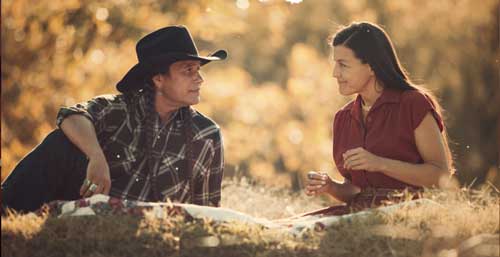
Based on the true story of the Bell Waterline Project in Bell, Oklahoma, the film is inspired by the true story of the struggle for, opposition to, and ultimate success of a rural Cherokee community to bring running water to their families by using the traditional concept of “gadugi “– working together to solve a problem. Led by Wilma Mankiller, who went on to become the first woman chief of the Cherokee Nation, and full-blood Cherokee organizer Charlie Soap, they joined forces to help build nearly twenty miles of waterline using a community of volunteers. “The Cherokee Word For Water” was filmed completely in Tahlequah, Oklahoma.
In the process, they inspired the community to trust each other, and reawakened universal indigenous values of reciprocity and interconnectedness. The successful completion of the waterline sparked a movement of similar self-help projects across the Cherokee nation and in Indian country that continues to this day.
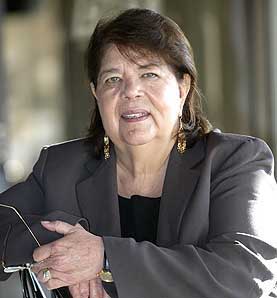 Wilma Mankiller was the first woman to lead a major Native American tribe in the U.S., serving for twelve years, the first two as Deputy Principal Chief. She retired from public office in 1995. Her roots ran deep in the rural community of Mankiller Flats in Adair County, Oklahoma, where she spent most of her life. During Wilma Mankiller’s leadership at the Cherokee Nation, she met with every U.S. President, and received the Presidential Medal of Freedom from President Clinton in 1998.
Wilma Mankiller was the first woman to lead a major Native American tribe in the U.S., serving for twelve years, the first two as Deputy Principal Chief. She retired from public office in 1995. Her roots ran deep in the rural community of Mankiller Flats in Adair County, Oklahoma, where she spent most of her life. During Wilma Mankiller’s leadership at the Cherokee Nation, she met with every U.S. President, and received the Presidential Medal of Freedom from President Clinton in 1998.
She was also the author of Mankiller: A Chief and Her People with Michael Wallis, and author and editor of Every Day Is a Good Day: Reflections by Contemporary Indigenous Women (there is an excerpt from the book below).
Until her death on April 6, 2010, Wilma Mankiller worked tirelessly for the advancement of Indigenous peoples in the US and abroad. The Wilma Mankiller Foundation has been established at the Tulsa Community Foundation to honor Chief Mankiller's legacy of social and economic justice in Indian Country.
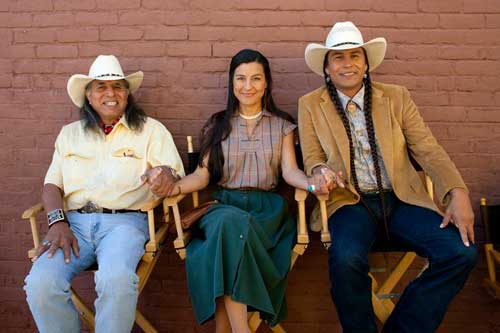
The cast of “The Cherokee Word for Water” includes Kimberly Guerrero, Moses Brings Plenty, Steve Reevis, Oren Lyons, Darryl Tonemah, Zahn McClarnon, Ben Livingston, Deanna Dunagan, and Kaylea Dreadfulwater, among many other fine actors. The film was produced by Charlie Soap, Laurene Powell, Paul M. Heller, Kristina Kiehl, Louise Rubacky, Claudette Silver, Perry Pickert, and Ashley R. Friedman.
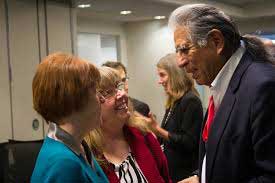 Charlie Soap, Producer/Director, was Wilma Mankiller’s husband and community development partner for more than thirty years, and a leader in the Bell Waterline Project that inspired the film.
Charlie Soap, Producer/Director, was Wilma Mankiller’s husband and community development partner for more than thirty years, and a leader in the Bell Waterline Project that inspired the film.
Mr. Soap, a full-blood bilingual Cherokee, has dedicated his life strengthening many Cherokee communities. Since early 2002, he has worked with the construction of eight community buildings and numerous other critical self-help initiatives. Mr. Soap has lectured on community development at many important institutions including Cornell University, Arizona State University Law School, the University of Maryland, Tufts University, Indiana State University, and Mayo Clinic.
Working tirelessly worked with business, education and political leaders to establish the Boys and Girls Club of Tahlequah, he served as its founding Director. Under Mr. Soap’s leadership, the Club operated a comprehensive summer enrichment program and working with Tahlequah Public Schools developed the first after-school programs in the school system. The collaboration between the Boys and Girls Club and the Tahlequah Public Schools has served as a national model.
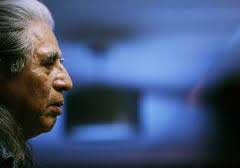 Mr. Soap served as Director of the Cherokee Nation Community Development Department and seven years as the Oklahoma Area Director of the Christian Children’s Fund. He is also a skilled photographer, (working on two books, one of photographs of indigenous people in the South American Amazon, and another of his travels as a performer with Ray Charles around the world). He is also a fancy war dancer.
Mr. Soap served as Director of the Cherokee Nation Community Development Department and seven years as the Oklahoma Area Director of the Christian Children’s Fund. He is also a skilled photographer, (working on two books, one of photographs of indigenous people in the South American Amazon, and another of his travels as a performer with Ray Charles around the world). He is also a fancy war dancer.
When we had the good fortune of interviewing Mr. Soap, we asked him why it’s so important that this film was made for today’s audiences?
He told us: “I think the contemporary American Native has a lot to tell today. It was important to Wilma and me. We talked a lot about this together. There is a lot of need in the Native communities across the country in telling the history of the past. It's still important for everyone to know "gadugi" is very much alive – that kind of philosophy. That when we do community projects, that everyone is involved. To get all the people interested who are in the community to come and help. There was a lack of money for the Bell Waterline Project. We had to do something innovative, and Wilma and I got together and used this self-help method that would help the Bell Community. We showed that if it could work in our community, it could work everywhere. It was to help get people in their communities to be self-sufficient. That was something in our early history that she and I believed in. It was one of the things we had talked – that “gadugi” would be very important.”
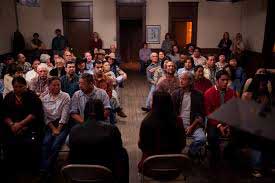 We asked if there were times if he wasn’t sure if the film would actually be made?
We asked if there were times if he wasn’t sure if the film would actually be made?
“I had never been involved in a film before. Yeah, there were times when I thought: “This isn’t going to happen.” It was Kristina’s idea to make the movie; she had been working with Wilma for twenty years on it before I got involved. They had been working on it for so long. Eight days before she passed, she said to me at her bedside; she knew she wouldn't see the completion of the film, that it was her wish for the film to be made. (She had approved the script.) She said to me: “You have to help Kristina make the film.”
“Well, it is such an important film for Cherokees, actually for everyone across the country. The Native Americans have contributed a lot to America. Then after Wilma had passed, Christina and I worked on raising the money. In a year we raised it and a year later we were shooting the film. I was amazed that it was actually happening, plus all the things that go into making a film, with all the reshoots and the editing. It was an emotional experience for me to direct the film, and it’s a powerful movie. I’ve watched it in over a hundred cities and communities and I still enjoy it, and not so much about Wilma and myself.”
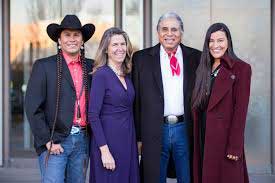 We asked Mr. Soap: How would you describe what made yours and Wilma Mankiller’s partnership in serving people work so well?
We asked Mr. Soap: How would you describe what made yours and Wilma Mankiller’s partnership in serving people work so well?
“I think the partnership really was unique. I noticed about Wilma that she really wasn’t scared about people. She was sincere in her feelings, and honest about people. She believed in strengthening the Indian Nations; I had never seen that before. We thought along the same lines with the same philosophies.”
“Being a full -blooded Cherokee, and while she was originally from Oklahoma, she now had come from California, and listening to her ideas, seeing her in action in the communities – she really believed in our People. We really complimented each other in our work. She’d talk to the communities in English and I'd translate it into Cherokee. She was smart, and even though she had health problems, it didn’t slow her down. She was really a hard working lady; I enjoyed working with her. She would listen to the people and took it to heart. She listened to what the needs were of the community.”
“We were able to fund projects, empower the communities because of who she was. When we met with those in the community, she would tell them: “This is what we do: we’re here to turn the power over to you. We’re here to help you meet your goals.” We believed in empowering the communities and strengthening the communities.”
“Wilma knew her people. She knew what the problems were in the Native communities. She would focus on them and she wasn’t afraid to tackle them, and we’d work together towards economic development or education development. She believed in the people and strengthening the nation’s “gadugi.” We’d work with the communities finding ways to write grants for the real needs in the communities, working on the inside instead of on the outside.”
“I think a lot has changed. Today it’s different, the leadership is different, every leader has their own ideas. But I still think it’s always the best method to listen to the people; it makes it easier to get things done.”
I asked him: The film is a glowing love story and a story of courage and faith. You’ve dedicated life to strengthening many Cherokee communities through establishing the Boys and Girls Club of Tahlequah and served as its founding Director, which operates a comprehensive summer enrichment program and working with Tahlequah Public Schools developed the first after-school programs in the school system. The collaboration between the Boys and Girls Club and the Tahlequah Public Schools has served as a national model. You were also the Director of the Cherokee Nation Community Development Department and seven years as the Oklahoma Area Director of the Christian Children’s Fund. What could continue to happen to bring together communities with greater understanding and compassion?
Mr. Soap told us: “I think one of the things I see happening has been the collaborative working together on each of the problems we have in the communities, working with the local organizations even at the federal level. A lot of those in Washington, D.C. don’t really know enough about Native People.”
“Wilma said: “Every four years we have to start all over and educate those people in Congress and the Senate. Their staffs don’t know about the problems that Native communities are struggling with to defeat disease and illness. One of the important things to work on is the kind of health care those in the rural communities receive or don’t receive. We have poor health care.”
‘Wilma and I would visit hospitals and talk to the doctors. It’s not about blaming what the hospitals do or the health organizations, a lot of it has to do with the funding. I think if it was more focused on getting better service equipment and facilities to work together and on education , more true correct information to the students in schools with Native People writing their own history, more progress could happen.”
“I think so many time leadership becomes more about those in their positions, instead of it being about the people. Wilma was a people-person like myself, working within the communities, always brought up that way, working with “gadugi.”
I asked Mr. Soap about his personal reaction to the affect the film’s been having being shown across the country and future plans in bringing the film to a wider audience.
He told us: “I use to just watch movies and that’s all they were. But what I’ve been seeing with this film is something entirely different. It’s like a magnet bringing people together. I find it amazing what the film is doing. I strongly believe it’s playing a big role in educating people and bringing people together in a very rich and emotional way. Audiences are really touched by the film.”
“We’ve gotten several requests from around the world: Sweden, London, Germany, New Zealand, France, Africa, Nicaragua, surprisingly even Cuba wants to show the film. Wilma was noted around the world and had met many world leaders. We’re looking at everything, plus we’ve had so many requests across the U.S.”
“Many tribes have stories they need to be told, especially to their young people, and young people need to see this film. We need to create young heroes. We’re working on a documentary about young heroes in the communities next year. Also I’m happy to announce that the DVD of this film is coming out on Nov. 18th – which is Wilma’s birthday.”
I asked him about his personal skills as a photographer and his upcoming books of he’s taken on his travels around the world and as a Fancy Dancer.
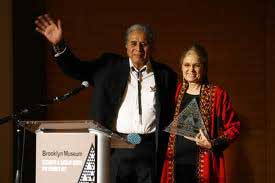 Mr. Soap said: “It’s been such a busy time. I’d really like to do a couple of books of photography. I’ve taken many photos when I would travel with Wilma, and also I’ve taken very special photos of the Cherokee People, and also as a Fancy Dancer when I had the opportunity to tour with Ray Charles to Europe.”
Mr. Soap said: “It’s been such a busy time. I’d really like to do a couple of books of photography. I’ve taken many photos when I would travel with Wilma, and also I’ve taken very special photos of the Cherokee People, and also as a Fancy Dancer when I had the opportunity to tour with Ray Charles to Europe.”
I always tell people that it’s not just about the Cherokee way, but that these dances I would do contain stories we’ve borrowed from other tribes – it’s always about sharing the information, the customs, the different cultures. “The Cherokees have their own story to tell, their traditional dances, language, their medicines. I believe it’s important to talk about connectiveness, the inner with outer worlds, all of the planets, and how everything is balanced. We learn this from the Elders. There are many advances of knowledge but a lot of wisdom handed down hasn’t necessarily been written down, it’s an oral tradition.”
“We face a lot of problems on this planet, including pollution. The water is an important issue. A lot people don’t always think about it but we need to be careful how we can protect our water. We can’t replace our water, we can’t live without water.”
“I appreciate your putting these words out about our people. I see you had interviewed Oren Lyons in your newspaper, and he is a great friend. He is very special to all people, all Nations. We were so honored to have him participate in the film as Grandfather in the film.”
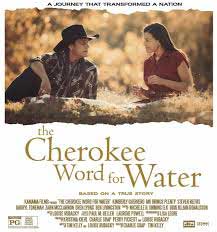 “And one more thing we’ve been able to create is the Wilma Mankiller Foundation, which was one of the things we created after Wilma left us. All the money the film generates, after the sponsors are paid goes across the country helping Indian communities towards education, which is something we should be all be working towards. These young people are our future.”
“And one more thing we’ve been able to create is the Wilma Mankiller Foundation, which was one of the things we created after Wilma left us. All the money the film generates, after the sponsors are paid goes across the country helping Indian communities towards education, which is something we should be all be working towards. These young people are our future.”
This following excerpt comes from Wilma Mankiller’s Every Day Is a Good Day: Reflections by Contemporary Indigenous Women.
My Great-Aunt Maggie Gourd was a very good storyteller who believed in the power of dreams. She once told us about a dream in which a large animal-a bull or a buffalo-tried to break into her house by repeatedly ramming her front door. When she woke up the next morning, her front door was badly damaged. I remember only tiny fragments of the dream stories Maggie shared, but I recall clearly that in her stories, there were no absolute lines between dreams and reality. Maggie also told us stories about Little People, Yunwi Tsunsdi, who lived in rocky places like a bluff near freshwater wherever Cherokees reside. They are only about three feet tall. They sing and speak in Cherokee. ... Cherokee people describe Little People as "secondhand." It is often said that if one sees the Little People and tells about it, that person will soon die.
My mother-in-law, the late Florence Soap, told me that her father used to gather medicine for her sister from a certain place. Then one day, for the first time, he took her to a new place to look for medicine. When her sister asked him why they couldn't go back to the old place, he said the Little People told him not to come back to gather medicine there. He soon got sick and died. Florence said, "If he hadn’t told my sister about seeing the Little People, he would probably have lived longer. That's what we believe." Also, if anything out of the ordinary is found in the woods, Cherokees assume that it belongs to the Little People. If a Cherokee woman goes out to gather hickory nuts and happens on a woven basket left by another gatherer, she can pick it up and say out loud, "Little People, I am taking this basket." Then it is hers to keep. That is her right.
There were other important women in my early childhood but none more important than my mother, Irene Sitton Mankiller, who has provided me with a lifetime of unconditional love. My mother worked alongside my other siblings and my father on income-producing projects as well as the dozens of daily chores required to keep a large family fed and cared for. My mother never sat me down and said this is how you should live or this is what it means to be a woman. I learned a lot from watching her and the other women around me. I remain grateful to both my parents for never telling me, "Girls can't do that," and for letting me define for myself what it means to be a woman.
Then there were the "bless-your-little-heart" ladies. They were white Christian women who made our family one of their charities by bringing used clothing and other gifts to our small wood frame home. When I saw their big car approaching our house, I ran and hid. While walking to and from school, they would sometimes stop and offer us a ride, murmuring, "Bless your little hearts." Even at a very early age, I understood that these women thought they were better than us and that they would accept us if only we were more like them. Many years later, a white woman raising money to give college scholarships to indigenous students told me she wanted to "give pride back to the Indians." She had such a staggering sense of entitlement; she didn't know the highly insulting and patronizing nature of that statement. She reminded me of the "bless-your-little-heart" ladies from my childhood.
After we made the wrenching move to California, a number of women reached out to me. Without them, I don't know how I could ever have become a successful adult. I especially value the time I had with my maternal grandmother, Pearl Sitton, who was a reassuring presence during a time when I felt confused, lost, and out of place in San Francisco. In school I was teased a lot and labeled as different because I had an unusual last name, spoke with an Oklahoma accent, and looked "ethnic." But the biggest differences stemmed from the very divergent life experiences of the other children and me. While they had learned to ride a bicycle, skate on roller skates, or play with the hula hoop, I had never even spoken on a telephone or used a flush commode before our arrival in San Francisco.
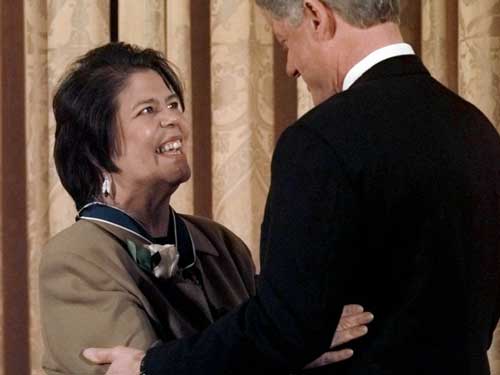
During my adolescence, I spent most summers with Grandma Sitton and lived with her for a year while attending the eighth grade at Lone Tree School in nearby Escalon, California. Grandma Sitton was an extremely independent and affectionate woman who had moved to California to start over again after the death of my grandfather. She liked to sing gospel songs as she worked in the house or in the garden. She was a disciplined woman who was up before sunrise each morning and in bed shortly after nightfall. It was clear where my mother got her work values.
Several single mothers at the San Francisco Indian Center made quite an impression on me as well. They held clerical or professional jobs, did volunteer work at the Indian center, and helped each other. My sister and I watched their children while they went dancing in the ballroom of the San Francisco Indian Center or some other fun place. On Saturday night, they gathered at Justine Buckskin's house to joke and tease each other as they got ready for their big night out. I loved watching the women work their hair into impossibly high hairdos, glue it together with Aqua Net hair spray, and then teeter out the front door on high heels, assuring us they would be back by midnight, a goal they never met. To a twelve-year-old, their lives seemed full and exciting. Much later I learned that they found their beautiful Saturday night outfits in the clothing bins at Saint Vincent de Paul's thrift shop on Fourteenth and Mission Streets, and that they often struggled to make ends meet, relying on one another to get from one payday to the next. Though they adjusted to life in the city, they longed to return to their tribal communities, and most eventually did. These women were resourceful, doing the best they could with what they had and taking the time to find joy in their families, friendships, and their special nights out. Even today the heavy scent of Aqua Net hair spray makes me smile and remember those resilient women.
Like my counterparts at the Indian center, a beehive hairdo was perched precariously on my head when I was married just a few days before my eighteenth birthday in November of 1963. My husband expected me to step completely away from involvement in the Indian center and from my birth family. It was a tall order. I had an avid interest in social justice issues and the extraordinary world around me. At that time in San Francisco, there were many debates and discussions of Red Power, civil rights, and women's rights. Musicians Janis Joplin and Jimi Hendrix were introducing a completely new sound to a generation now known as baby boomers, and the Haight-Ashbury district was becoming a mecca for middle-class young people. There was a free-speech movement at the University of California at Berkeley and massive anti-war demonstrations throughout the Bay Area. By the time I was twenty-three, any notion that I could live my life as a wife and mother as defined by my husband and the social constraints of that time was gone forever. I became involved in the community, started thinking about attending college, and the beehive hairdo, makeup, and heels were replaced by long straight hair and sensible shoes.
In 1976 when my daughters, Felicia and Gina, and I returned to Oklahoma, I was more independent, self-confident, and had acquired some knowledge of land and treaty rights as well as grant-writing skills. I also had an abiding faith in the ability of Cherokee people to solve their own problems, and I immediately began developing community-based programs that reflected that philosophy. At that time, there were no female executives with the Cherokee Nation-and there had never been a female deputy chief or principal chief. in historic times, women played an important role in Cherokee government and in tribal life, but that role had diminished over time. As Cherokee people began to intermarry with whites and adopt the values of the larger society, women increasingly assumed a secondary role. When I first ran for election as deputy principal chief in 1983, it seemed the strong role of women in Cherokee life had been forgotten by some of our own people. I vividly remember a man standing up in a campaign meeting and telling me, "Cherokee Nation will be the laughingstock of all the tribes if we elect a woman." Though there was considerable opposition to my candidacy, I was elected to serve a four-year term as the first female deputy principal chief in Cherokee history. I thought this was my summit in tribal government, but I was elected to serve as principal chief in 1987-the first woman to hold that position-and resoundingly reelected again in 1991.
By the time I left office in 1995, after not seeking a fourth four-year term of office, there were fewer questions about whether or not women should be in leadership positions in the Cherokee Nation. If people opposed me, it was because they disagreed with my policies, not just because I am female. Cherokee people are more concerned about competency-about whether the Head Start bus shows up on time or whether they are properly diagnosed at the health clinics – than whether a woman is leading the nation. In a way, my elections were a step forward for women and a step into the Cherokee tradition of balance between men and women. Excerpt from Every Day is a Good Day by Wilma Pearl Mankiller. Reprinted with the permission of Mr. Charlie Soap.























